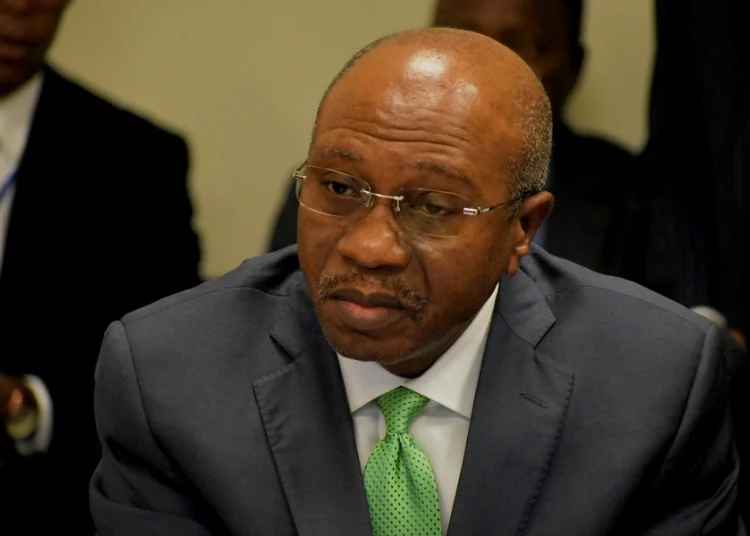Nigeria’s economy has been described as a mono-product economy due to its heavy reliance on crude oil for its revenue and foreign exchange inflow for decades.
In spite of the several dialogues and polices aimed at changing this narrative, oil and gas continues to account for nearly 90 per cent of export income and 85 per cent of government revenue in Nigeria.
The country, which is one of the top economies in Africa, is blessed with vast arable land and statistics shows that even though Nigeria has over 80 per cent of its land arable, less than 40 per cent of the land is cultivated.
Its heavy reliance on crude of which it has no price determining power has made the economy largely susceptible to the whims of external forces.
According to development consultant & lead consultant, Industry & Private Sector Development, ECOWAS Commission, Professor Ken Ife, the effect of this has been evident in the face of recent global recessions of which Nigeria has had its fair share.
Prof Ife, while speaking at a one day seminar for finance journalists organised by the Central Bank of Nigeria (CBN) noted that, the economy is still a predominantly import dependent, despite half a century of lip service of diversification, backward integration and import substitution.
“The import dependence is compounded by a monocultural hydrocarbon dominated forex import earner that accounts for 79 per cent in crude oil and 10 per cent in natural gas, a third of Banking sector credit, and half of Government revenues, even though Petroleum sector accounts for just over five per cent of the GDP.
“The impact of this is that Nigerian economy is on the transmission belt of global supply chains. Any exogenous global headwind affects Nigerian economy. 2008/2009 global financial crisis precipitated by US sub-prime mortgage forced CBN to set up AMCON that gulped N6trillion to clean up the balance sheet of Nigerian Banks and Financial Institutions.
“In 2017 global energy crisis forced Nigeria into stagflation, provoking extreme measures and domestic finance intervention in support of backward integration of 31 items delisted from CBN Forex eligibility.
“By 2020 Covid – 19 global pandemic and global supply chain disruptions pushed Nigeria into deep recession. And now, Russian – Ukranian conflict. Crashes in crude oil prices between 2015 to 2017 resulted in loss of over $100 billion (N 41.5 trillion). In this current recession, we must have lost over $30 billion in foreign exchange,” he pointed out?
However, Dr. ‘Biodun Adedipe, of B. Adedipe Associates Limited, stressed the need for urgent action to be taken to ensure that the country is transformed from a mono product economy to a multi-product economy.
Adedipe, who explained that diversification means that the country does not rely on only one or few related sources of revenue, income or inflows, stated that, with fossil (dirty) fuel gradually going out of fashion, “about 80 per cent of Nigeria’s merchandise export is under threat! Frenzied pursuit of clean and green energy to address climate change. Green bond issuances and other funding are massively flowing into developments in this space.”
He also listed as reasons the government must move away from oil, the cocktail of policies and incentives driving evolution of electronic vehicles – Ban on ICE or electrification: Norway 2025; 9 countries + UK 2030; US, China & Japan 2035; others 2040, 2045 and 2050. There is also the discovery of crude oil in increasing number of African countries whose oil policies are more investor friendly.
To him, “if Nigeria sincerely wants to get out dependence on crude oil dependence and the woes this has brought since the petrodollar began flowing in 1974, some courageous steps must be taken. We must understand that this is not a financial and financing matter. Removing or reducing exchange rate premium won’t solve it.
“Taking accommodation with IMF won’t do it either – Ghana has done that 17 times and yet, the Ghanaian Cedi is not a super currency today. The fundamental issue is that we are producing the right things and we are not producing enough. We look more outside of Nigeria for redemption, whereas the solution to most of our problems lie within. Looking inwards preserves. We must deliberately align policies across fiscal, monetary, commercial and industrial planks.”
Identifying sources of foreign exchange earnings, Prof Ife had earlier listed proceeds from oil exports, proceeds from non-oil exports, Foreign Direct and Portfolio Investments as well as diaspora remittances, which has increased from $6 million per week in December 2020, to $100 million per week by January 2022.
On how the CBN interventions have been beneficial to the economy, Prof Ife said: “in 2020, as was in 2016, Nigeria went into stagflation. Whilst it took 5 quarters, to 2017 to exit recession, in 2020 it took only 1 quarter. This was so because of the quantitative Monetary Policy Intervention (N3.5 trillion) and fiscal intervention (Economic Sustainability Plan – N2.3 trillion of which CBN was to contribute N1.5 trillion). The supply chain disruption, pervasive insecurity, staff retrenchment and high levels of unemployment meant that more people could have died of hunger and starvation than insecurity and COVID-19 put together.
“But CBN Anchor borrowers programme stopped it. The result was 4.5 million farmers accessing credit of N945 billion without collateral; 5.2 million hectares of crops planted and intervention on 21 value chains. Targeted credit facilities of N368.79b (as at Feb, 2022) reached 648,052 households and 130,00 MSMEs to support aggregate demand as N1.452 trillion of real sector support facility went to boost 337 companies, real sector output, complemented by N134.63 billion AGSMEIS programme benefiting 37,571 MSMEs.”





